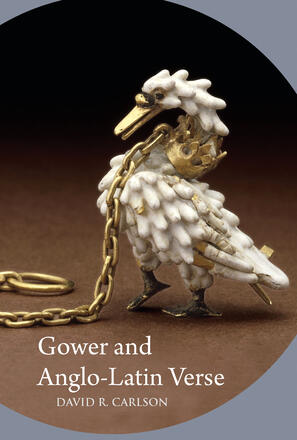
Gower and Anglo-Latin Verse
Description
This study offers a novel paradigm for explaining the late-medieval Anglo-Latin verse, by analyzing the development of the writings of the English poet John Gower (ca. 1330-1408), who made major contributions to English- and French-language poetry, in addition to being the pre-eminent Latin poet of the "Age of Chaucer." In addition to translating amongst the three languages in which he worked, Gower invented a plain style for Latin "public poetry" that was like his better-known English-language Confessio amantis in emphasizing regular prosodic simplicity; and his plain style was emulated by other Anglo-Latin poets. Gower's Latin public poetry contradicts the other kinds of Latin verse in use in England at the time: on the one hand, the demotic accentual-syllabic rhymed verse in use amongst clerical controversialists and other kinds of social polemicists, characterized by language-mixing and prosodic fluidity within individual poems; and on the other, the hyper-sophisticated poetria nova of the schoolmen. At the end of his career, however, Gower rejected his own plain-style Latin-verse invention to take up instead the late scholastic style, but only at the moment of its decadence, when the humanist neo-classicism that disdained scholasticism would already have begun to arrive in England.
Reviews
"Gower's Latin has received attention and admiration, but this is the first full length study that treats his Latin writing, not in the context of his English or French works, but as the apogee of fourteenth-century Anglo-Latin poetry. In this deeply informed study, David Carlson animates for his readers Gower's 'vivid, varied Anglo-Latin,' and offers a compelling portrait of its idiosyncratic, impassioned, yet controlled style. For Carlson, Gower writes verses that are not in thrall to classical precedent, but 'retain contemporary shapes.' Gower and Anglo-Latin Verse models fresh attention to a medieval Latin that is a living poetic language: confident, experimental, and prestigious." -- Ardis Butterfield, Yale University